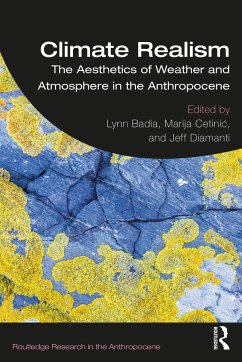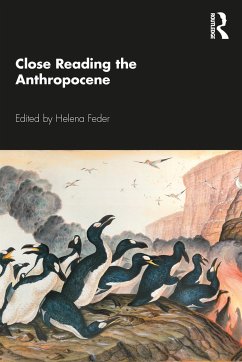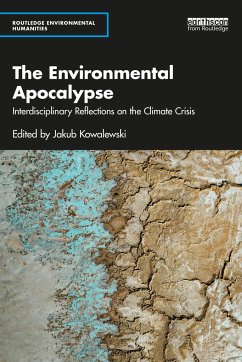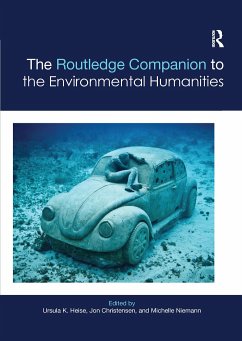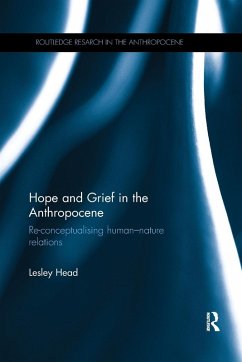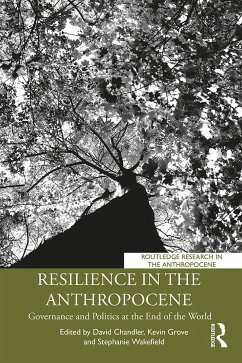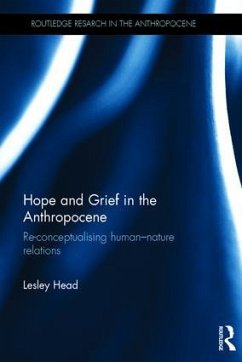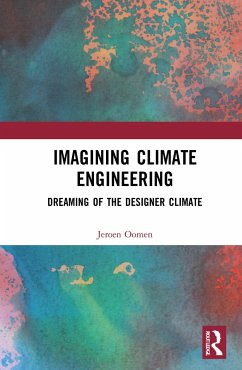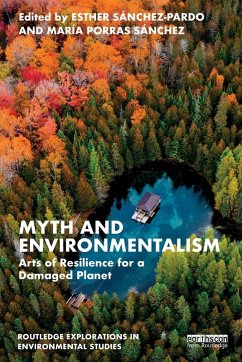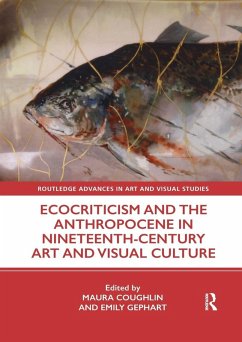
Climate Realism
The Aesthetics of Weather and Atmosphere in the Anthropocene
Herausgegeben: Badia, Lynn; Cetinic, Marija; Diamanti, Jeff
Versandkostenfrei!
Versandfertig in 6-10 Tagen
154,99 €
inkl. MwSt.
Weitere Ausgaben:

PAYBACK Punkte
77 °P sammeln!
This book sets forth a new research agenda for climate theory and aesthetics for the age of the Anthropocene. It explores the challenge of representing and conceptualizing climate in the era of climate change.In the Anthropocene when geologic conditions and processes are primarily shaped by human activity, climate indicates not only atmospheric forces but the gamut of human activity that shape these forces. It includes the fuels we use, the lifestyles we cultivate, the industrial infrastructures and supply chains we build, and together these point to the possible futures we may encounter. This...
This book sets forth a new research agenda for climate theory and aesthetics for the age of the Anthropocene. It explores the challenge of representing and conceptualizing climate in the era of climate change.
In the Anthropocene when geologic conditions and processes are primarily shaped by human activity, climate indicates not only atmospheric forces but the gamut of human activity that shape these forces. It includes the fuels we use, the lifestyles we cultivate, the industrial infrastructures and supply chains we build, and together these point to the possible futures we may encounter. This book demonstrates how every weather event constitutes the climatic forces that are as much social, cultural, and economic as they are environmental, natural, and physical. By foregrounding this fundamental insight, it intervenes in the well-established political and scientific discourses of climate change by identifying and exploring emergent aesthetic practices and the conceptual project of mediating the various forces embedded in climate.
This book is the first to sustain a theoretical and analytical engagement with the category of realism in the context of anthropogenic climate change, to capture climate's capacity to express embedded histories, and to map the formal strategies of representation that have turned climate into cultural content.
In the Anthropocene when geologic conditions and processes are primarily shaped by human activity, climate indicates not only atmospheric forces but the gamut of human activity that shape these forces. It includes the fuels we use, the lifestyles we cultivate, the industrial infrastructures and supply chains we build, and together these point to the possible futures we may encounter. This book demonstrates how every weather event constitutes the climatic forces that are as much social, cultural, and economic as they are environmental, natural, and physical. By foregrounding this fundamental insight, it intervenes in the well-established political and scientific discourses of climate change by identifying and exploring emergent aesthetic practices and the conceptual project of mediating the various forces embedded in climate.
This book is the first to sustain a theoretical and analytical engagement with the category of realism in the context of anthropogenic climate change, to capture climate's capacity to express embedded histories, and to map the formal strategies of representation that have turned climate into cultural content.




